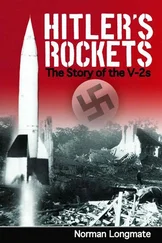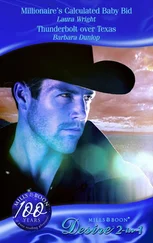Mike Mullane - Riding Rockets
Здесь есть возможность читать онлайн «Mike Mullane - Riding Rockets» весь текст электронной книги совершенно бесплатно (целиком полную версию без сокращений). В некоторых случаях можно слушать аудио, скачать через торрент в формате fb2 и присутствует краткое содержание. Жанр: Старинная литература, на английском языке. Описание произведения, (предисловие) а так же отзывы посетителей доступны на портале библиотеки ЛибКат.
- Название:Riding Rockets
- Автор:
- Жанр:
- Год:неизвестен
- ISBN:нет данных
- Рейтинг книги:3 / 5. Голосов: 2
-
Избранное:Добавить в избранное
- Отзывы:
-
Ваша оценка:
- 60
- 1
- 2
- 3
- 4
- 5
Riding Rockets: краткое содержание, описание и аннотация
Предлагаем к чтению аннотацию, описание, краткое содержание или предисловие (зависит от того, что написал сам автор книги «Riding Rockets»). Если вы не нашли необходимую информацию о книге — напишите в комментариях, мы постараемся отыскать её.
Riding Rockets — читать онлайн бесплатно полную книгу (весь текст) целиком
Ниже представлен текст книги, разбитый по страницам. Система сохранения места последней прочитанной страницы, позволяет с удобством читать онлайн бесплатно книгу «Riding Rockets», без необходимости каждый раз заново искать на чём Вы остановились. Поставьте закладку, и сможете в любой момент перейти на страницу, на которой закончили чтение.
Интервал:
Закладка:
I put on another happy face and congratulated the winners. A few weeks later Norm Thagard became the eleventh TFNG to draw an assignment when he was retroactively assigned to STS-7. NASA was growing concerned about the incidence of space sickness and wanted Thagard, a physician, to run some experiments on what was being officially labeled Space Adaptation Syndrome (SAS). SAS had impacted the recently landed STS-5 mission in a very big way. One of the two spacewalkers on that flight had been so stricken with vomiting the crew had asked MCC for permission to delay their EVA (Extra-Vehicular Activity, i.e., a spacewalk) to give him time to recover. Vomiting inside a spacesuit could kill an astronaut. The emesis could smear the inside of the helmet visor and blind the spacewalker, making it impossible to respond to a suit emergency. Also, because there was no way to remove the fluid, the astronaut could inhale it and choke to death or it could clog the oxygen circulation system and suffocate the victim. The STS-5 space-walk, which was to have been the first from a shuttle, had just been a demonstration exercise (and was ultimately canceled for a suit malfunction), but in future missions spacewalks would be essential for mission success. Norm Thagard would be the first of many physicians sent into space to determine the cause of SAS. He, like all who would follow, would have their studies seriously hampered by astronaut paranoia. Spacewalking was the most sought-after prize for MSes. It filled a powerful need to be in ultimate control. The pilots had their shuttle landings to fulfill them. Their hands and eyes delivered a 200,000-pound orbiter to a runway. It was the same with a rendezvous mission. A pilot’s personal skill brought two 17,300-mile-per-hour objects together 200 miles above the earth. It was heroic work. On the other hand, much MS work was mundane—throwing a switch to release a satellite, drawing blood, changing a data tape on some scientist’s experiment. Spacewalks and, to a somewhat lesser degree, robot arm operations were the exception in MS jobs. Like a pilot feeling the kiss of the runway on the space shuttle wheels, MSes could enjoy a powerful sense of being in control as they assembled structures or repaired satellites or performed other hands-on spacewalking tasks.
So physicians studying SAS, like Thagard, were hamstrung. Astronauts didn’t want to admit to an episode of vomiting out of fear that it would eliminate them from consideration for future spacewalk missions. As a result many astronauts were less than truthful about their symptoms. Some blatantly lied. We would hear stories of crewmembers who were seriously sick, yet the data would never appear on the flight surgeon’s bar charts. SAS was considered an individual health issue and was therefore privileged information between the astronaut and flight surgeon. If an astronaut didn’t tell the flight surgeons the truth, the doctors were not going to hear it from anybody else.
To be SAS-free was considered so important, many astronauts attempted inoculations. When it was first assumed the problem was related to Earth-based motion sickness (later disproved), astronauts would perform stomach-churning acrobatics in T-38 jets in the days prior to a launch. I was flying in Story Musgrave’s backseat when he decided to prep his body for an upcoming mission. He asked ATC for a block of altitude and then went into a series of spiraling rolls and violent maneuvers that alternately had me slammed into my seat at 4-Gs and lifted from it in negative Gs. My head snapped back and forth like a palm tree in a hurricane. Within a minute I was ready to blow my last meal (and perhaps a few before that) and had to plead with him to stop.
Another equally ineffective attempt at SAS inoculation was to sleep on an incline with your head lower than your feet. This became popular when the flight surgeons hypothesized that the fluid shift of weightlessness might be causing the inner ear to be disturbed, inducing vomiting. All astronauts experience an uncomfortable eye-popping fullness in the head during weightlessness because of an equalization of body fluid. By sleeping in a bed with bricks under the foot posts to tilt the head down, it was thought the resulting fluid shift to the upper body would somehow prepare it for weightlessness and eliminate SAS. It didn’t. Some of those practicing head-down sleep still got sick in space, suggesting that those head-downers who didn’t vomit had probably been immune anyway. To this day doctors are baffled by the cause of SAS and it continues to affect nearly 50 percent of astronauts.
As the calendar turned to 1983, my fifth year as a TFNG, I was suffering from something far worse than SAS—the depression of being an unassigned astronaut. That status had me doubting everything about myself—my abilities, my personality, even my astronaut friends. Were they on Abbey’s shit list and, by association, was I too? I wondered if others had already been told of a mission assignment and were keeping it secret until the press release. Might an office mate already be assigned? Every few days a new rumor on flight assignments would sweep the office like a pandemic flu. Some of this scuttlebutt would have my name assigned to a mission. Before the press release for STS-10 appeared, one such rumor had me on that flight. But it was a lie. We all searched for any indication that another round of flight assignments was in the offing. We watched from our office windows for groups of our peers walking to Building 1, Abbey’s lair. Were they on their way to be told of a mission assignment? One astronaut kept a pair of binoculars on his desk to better observe that traffic (as well as hard-bodied, halter-topped female tourists). Unassigned TFNGs were ready to explode in frustration. At parties I could see the tension had infected our spouses. There is no rank among wives was an old military proverb. Yeah, and the Easter Bunny is an astronaut. Every wife of one of the unassigned, mine included, knew her position had changed. The wives of the assigned were working with the NASA PR people to schedule TV and magazine interviews while the spouses of the unassigned were wiping the baby’s ass. These Queens for a Day would soon be boarding NASA Gulfstream jets to zoom to Florida as VIPs. There was no doubt some marriages were suffering from the new reality of assigned and unassigned TFNGs. Mine certainly was. When Donna commented at a party, “George Abbey couldn’t lead a pack of Boy Scouts” (something I said every night), I pulled her aside and snapped, “Goddammit, don’t bad-mouth Abbey with others around! There’s no telling what gets back to him.” It wasn’t a fluke outburst. My frustration was a loose cannon and Donna was frequently in the line of fire. I was an asshole.
I continued my drab life. I would pull into the Building 4 parking lot by 7:30A.M . so I could fight for a parking space (cringing at the sight of the assigned TFNGs pulling into their reserved parking places), attend some SAIL-related meetings, go to the mail room to sign autographs (wondering why anybody would want mine), go to the gym to exercise, eat lunch in the cafeteria (to catch up on the latest rumors), attend more meetings or study shuttle-training schematics, perhaps take a T-38 flight (if the assigned crews had left any), then go home. On my SAIL days I would pull one of the eight-hour shifts of its 24/7 operation. If I was lucky, I would be called to the SMS for some real shuttle training as a substitute crewmember. When Guy Bluford was absent for an STS-8 simulation I received such a call and eagerly jumped on it.
From my perspective the racial integration of the astronaut office with Bluford, Gregory, McNair (all African American), and El Onizuka (Asian American) had occurred seamlessly. The entire astronaut corps seemed color-blind. I certainly was. My family upbringing, so abysmally lacking when it had come to the topic of females, had been radically progressive on the subject of race. “When you’re in a foxhole and the damn Japs are shooting at you, you don’t care about the color of the American at your side,” was my dad’s version of an “I Have a Dream” speech. And my religion, so medieval in its attitude about women, was enlightened in its preaching on race. Jesus Christ had said, “Love your fellow man.” He hadn’t added any footnotes on color. Hell’s fire awaited the racist, just as it did for boys imagining the cheerleaders naked. I never gave a second thought to the skin color of the minority astronauts and I got the impression the other palefaces in the astronaut office didn’t either.
Читать дальшеИнтервал:
Закладка:
Похожие книги на «Riding Rockets»
Представляем Вашему вниманию похожие книги на «Riding Rockets» списком для выбора. Мы отобрали схожую по названию и смыслу литературу в надежде предоставить читателям больше вариантов отыскать новые, интересные, ещё непрочитанные произведения.
Обсуждение, отзывы о книге «Riding Rockets» и просто собственные мнения читателей. Оставьте ваши комментарии, напишите, что Вы думаете о произведении, его смысле или главных героях. Укажите что конкретно понравилось, а что нет, и почему Вы так считаете.












